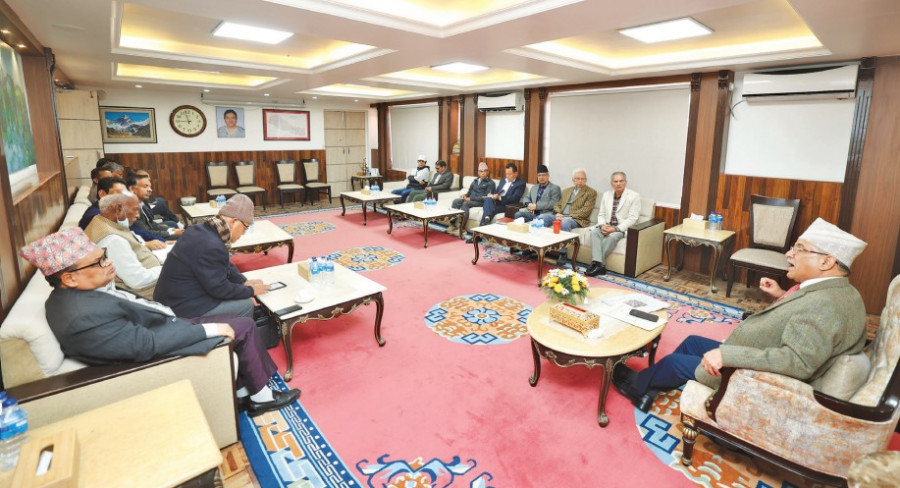Editorial
Haunted by the past
The Maoists of various stripes are betraying their lack of commitment to transitional justice.
It took a minor Supreme Court order to its administration to register petitions against Prime Minister Pushpa Kamal Dahal—not a first investigation report, or a police investigation, leave alone criminal prosecution—for brothers long lost in the Kumbh Mela of Nepali politics to suddenly remember their Maoist roots and scramble back home. The haste with which the disparate parties and individuals claiming the Maoist gene rejuvenated their bonhomie as if they had never been separated betrays the spectre of the criminal justice system in their minds. If only the comrades-turned-enemies-turned- comrades had been as vigilant about timely completion of the transitional justice process!
The who’s who of leaders with Maoist backgrounds and who had been part of the insurgency have been riled up by the momentum built by the Supreme Court order. The order has, in fact, acted as a catalyst for a get together of former and current Maoists, as was evident in the hitherto unimaginable meeting of the top leaders in Baluwatar, the Prime Minister’s residence, to discuss a joint strategy on transitional justice. What is intriguing is that the Maoist leaders, despite some of them being in mainstream politics for a decade and half, harbour the same megalomania that they are unquestionable, and that their past actions are to be forgiven and forgotten en masse as an inevitable rite of passage of history. This was evident in Baburam Bhattarai’s barbs against “dollar farmers”, as if those who seek justice in insurgency-era cases of violation of human rights are all foreign agents.
Given how riled up the Maoists of various shades are by the mention of transitional justice, their commitment to the process naturally comes under suspicion. Everyone from Prime Minister Dahal to Netra Bikram Chand to Renu Dahal has been ruffled by the calls for justice in the insurgency-era cases of human rights violations. Moreover, the National Human Rights Commission on Tuesday added insult to their injury by urging government and concerned parties to conclude the transitional justice process without delay. The commission has rightly pointed out that questioning petitions seeking justice may have unintentional effects on the victims’ right to seek justice. No matter how rattled they are with the most fundamental questions of justice, the Maoists, and by extension all parties to the conflict, should understand that such calls were a long time coming, an inevitable consequence of an eternal delay in the transitional justice process.
Beyond the hue and cry over the slightest inconvenience, the eight parties that have taken up arms against recent calls for justice, and all parties to the conflict, must understand that completing the justice process at the earliest is the only way out. The delay has largely to do with the fact that while some parties want mass amnesty, others want mass punishment in cases of gross violation of human rights. The right way out is to move ahead with a common understanding that neither of those approaches is justified, and that each case will be solved based on individual merit, and in doing so, the perspective of the victims would be given primacy. The victims, meanwhile, should seek justice as one homogenous group rather than let petty divisions come in the way of their collective fight for justice. The more divided they are, the more elusive justice will be.




 8.88°C Kathmandu
8.88°C Kathmandu














